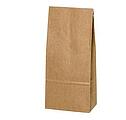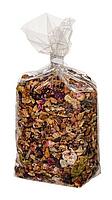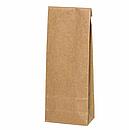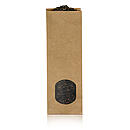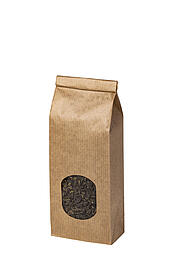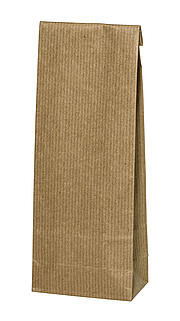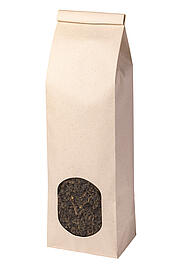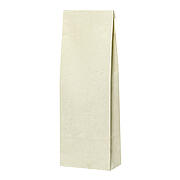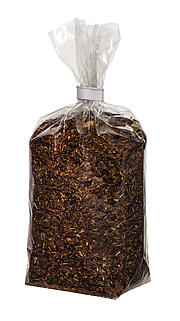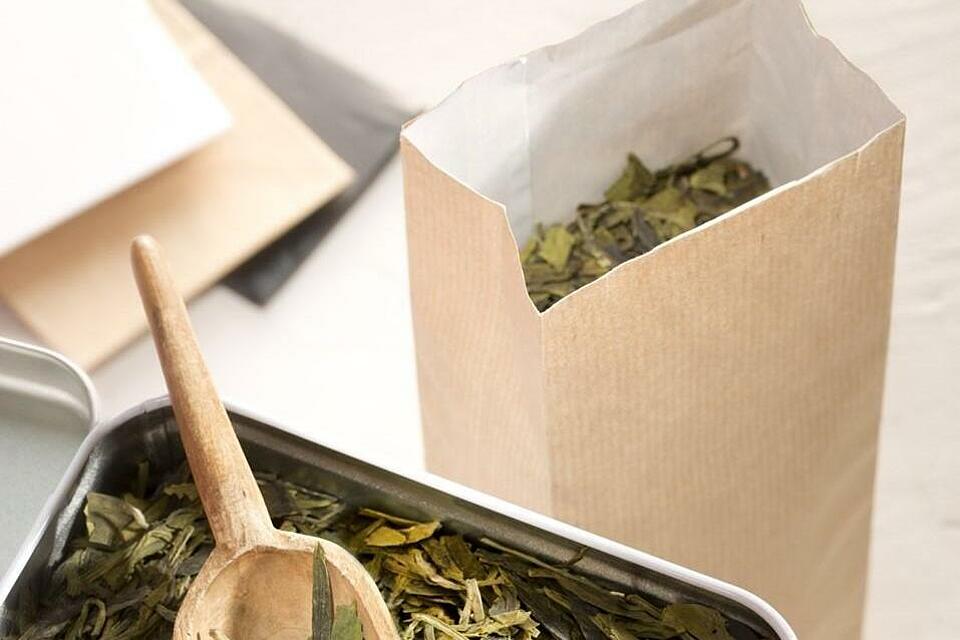
Packaging & Sustainability
Enjoy with Confidence
At Wollenhaupt, we have dealt extensively with the topic of ‘Packaging & Sustainability’ and will help you to select the right packaging materials and properly label and communicate the benefits. When choosing packaging, we always keep a close eye on the balance between the three main requirements for packaging: customer information – product protection and safety – low environmental impact.
Wollenhaupt has taken up the challenge and is committed to its goal of continuously striving to improve and reduce packaging materials. Together with our customers, we are focusing on the issue of sustainability for both our company and the next generation and are constantly working on optimisations. The close dialogue and cooperation with our packaging suppliers and our visits to trade fairs keep us informed about the rapid changes and innovations in the sustainable packaging industry and also help shape them.
A study conducted by market research institute Ipsos indicated that more than 75 % of all consumers in Germany want to buy products with as little packaging material as possible (Ipsos: “A Throwaway World”, 2019). A focus on sustainability aspects and the use of sustainable packaging has a positive impact on consumers’ brand perception. The influence of the issues of sustainability, ethics and morals is becoming more important or significantly more important for 74 % of retailers in Germany, according to a survey of an expert group of retailers in Germany conducted by the German trade newspaper Lebensmittelzeitung (C. Düthmann: “Keine Extravaganz” [“No Extravagance”], Lebensmittelzeitung, 18/2020).
Do you want to learn more about sustainability at Wollenhaupt? Find out more here.
Resource Conservation and Recycling Cycle

©Maksim Pasko/Adobe Stock
Product Safety Combined with Sustainability
When selecting packaging and materials, Wollenhaupt always focuses on the protection and safety of the product. We create enjoyment with confidence through product quality, food safety and delicious taste and flavour. Our goal is to use packaging materials in the most eco-friendly way possible. And that’s why we only offer packaging materials that are ideal to use for tea products and meet our strict quality requirements.
4 Steps to More Sustainability in Packaging
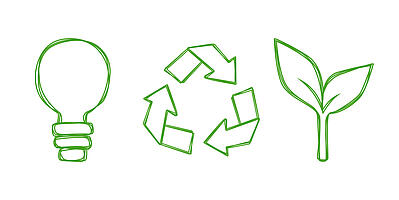
©Anna/Adobe Stock
Reduce
Reuse
Replace
Replacing three-layer composite materials with more sustainable options such as mono-films or films made from renewable raw materials also makes an important contribution. Many manufacturers are currently working on the development of suitable films that have the same properties with respect to product safety and protection. We monitor the market for you and evaluate all new options on the market in terms of their suitability for tea products, applying our strict quality criteria in order to live up to the trust you have placed in us.
Recycle
Labels, Claims and Logos
With regard to sustainability labels, claims and logos used for packaging, we recommend referring to the relevant regulations, guidelines and standards. After all, consumers can only be transparently and reliably informed about the benefits of your packaging if they are aware of the source and what it stands for.
FSC logo
The FSC® logo guarantees that the wood, i.e. the raw material used to make the paper, is sourced from responsibly managed forests. The Forest Stewardship Council® (FSC®) is an international non-governmental organisation that promotes environmentally appropriate, socially beneficial, and economically viable management of the world’s forests.
For more information, visit www.fsc-deutschland.de.
Wherever possible, we use FSC-certified products for our paper needs.
DIN EN 13432
The DIN EN 13432:2000-12 standard sets out the requirements for recycling packaging through composting and biodegradation as well as the test scheme and evaluation criteria for classifying packaging. Pursuant to DIN EN 13432, the requirements for industrial compostability are fulfilled if 90 % of the material has completely degraded within 12 weeks according to defined environmental parameters.
If a packaging material (composite), including any printing ink, adhesives, etc., verifiably complies with the requirements of EN 13432, the material may be labelled with the seedling logo and the claim of industrial compostability is allowed to be used.
Seedling logo
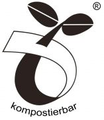
The seedling logo certifies that a packaging material is biodegradable in an industrial composting plant in accordance with the requirements of EN 13432. Since some industrially compostable films look similar to plastic, they cannot be immediately differentiated from conventional films.
The seedling logo helps consumers to identify industrially compostable materials.
An Overview of Our Packaging
Glassine bags
Paper bags made from agricultural waste
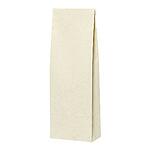
These bags are made from two-ply laminated composite and produced from renewable resources. The paper material used for the bags contains cellulose from 100 % agricultural waste. The bag is thus aroma-safe as well as compostable in compliance with EN 13432.
What is agricultural waste?
100 % cellulose from agricultural waste generated by the food industry is used to make the paper for the bags. Recycling this waste produces a lower environmental impact as compared to FSC-certified wood fibres. The inner film is made of PLA (polylactic acid), which is biodegradable due to its molecular structure.
We have used these bags for our ‘Naturally Organic’ series. Find out more.
Pyramid-shaped bags
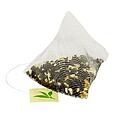
Pyramid-shaped bags:
We offer pyramid-shaped bags made from renewable raw materials. The filter material is made of sustainable PLA (polylactic acid) and, due to its molecular structure, it is biodegradable.
Aroma-safe outer packaging for pyramid-shaped bags:
We offer aroma-safe outer packaging in a variety of designs. Recyclable paper is used for the outer packaging and can be disposed of as paper waste. The cellulose-based film used for the outer packaging is made from more than 90 % renewable raw materials and is biodegradable.
Clear cellulose bags
Natron paper bag with PLA-foil
The complex requirements for packaging and the constant new developments regarding the sustainability of packaging materials are changing the sustainable packaging industry on a continuous and dynamic basis. Our packaging experts and quality assurance department are always sharing news and ideas, staying up-to-date and working hard to offer you the optimal packaging materials – optimal for product safety and for the protection of our planet.
If you have any questions about this topic, please don’t hesitate to contact us! We will be pleased to help you find the right packaging for your products.
